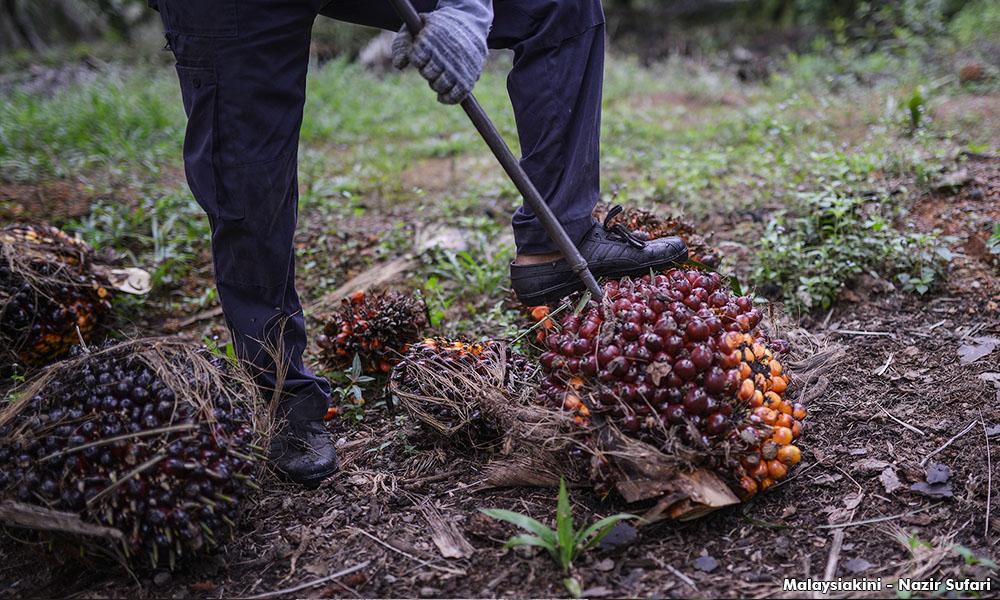
With 54 parliamentary constituencies in Felda areas, one would assume that BN, or more specifically Umno, would know how to take care of the welfare of the farmers and plantation owners.
After all, if Felda parliamentary areas were defeated, BN and Umno would be gone. Even if merely a handful of Felda seats were lost, Prime Minister Najib Abdul Razak would be in hot soup in his party’s Supreme Council. Knives would be out to end his political career.
But the prospective European Union ban on the use of palm oil in biofuels by 2021 suggests evidence to the contrary. Najib does not care about Felda. Neither do his cabinet members.
Earlier this year, the European Parliament passed two resolutions – to impose a single certified sustainable palm oil scheme for Europe-bound palm oil exports after 2020, and to phase out palm oil from the EU biofuel program by 2020.
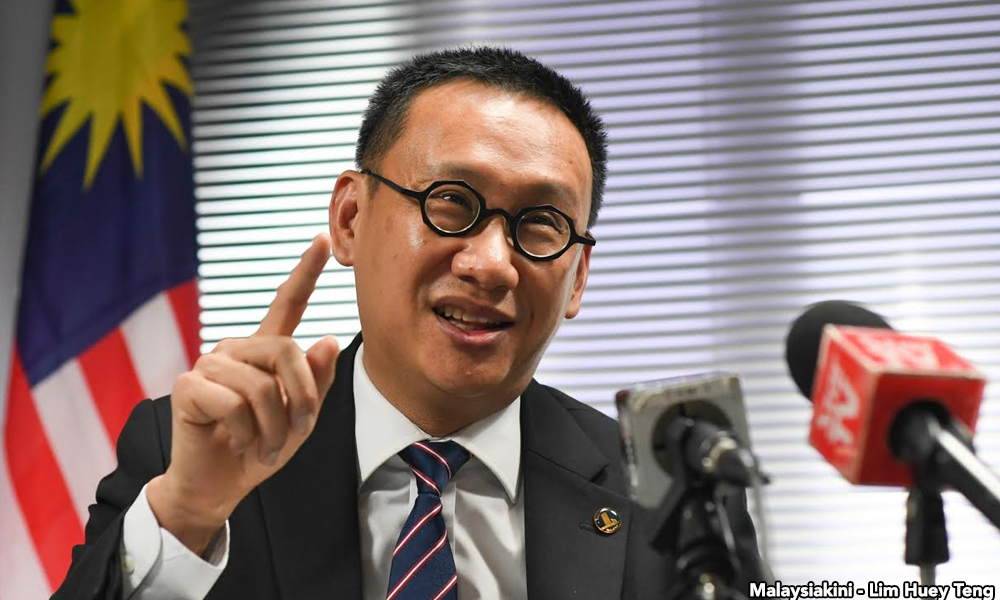
To be sure, some of the numbers do reflect sheer insouciance, as MP Wong Chen (photo) pointed out as early as 2015:
"For 2015, the budget to counter the anti-palm oil campaigns has been cut from RM16 million for 2014 to RM 10 million for 2015. The Malaysian Palm Oil Board, the body responsible for the promotion and development of the industry, has also seen a budget cut from RM25 million in 2014 to R14.5 million for 2015.
“Overall, from Budget 2015, this Ministry has allocated a mere RM24.5 million to defend and promote palm oil."
Yet, palm oil is a RM 80 billion export industry. To spend a mere RM24.5 million to defend and promote palm oil is nothing less than an attempt to trifle with the industry as a whole. RM24.5 million represents a mere 0.03 percent of total exports of palm oil.
If anything, talks of an impending crisis of palm oil only appeared in Najib's cabinet last week, when Defense Minister Hishammuddin Hussein spoke to his French counterpart Florence Parly on Jan 29.
Somewhat strangely, if not embarrassingly, Hishammuddin urged the French armed forces minister to block the ban; even though defence and palm oil issues are not related at all..
At another event, the Pasir Salak MP Tajuddin Abdul Rahman in turn argued that Malaysia should have nothing to fear in enforcing an embargo against the EU.
Plantation Industries and Commodities Minister Mah Siew Keong then entered the fray, by arguing that the MEPs’ declaration of a possible ban was a "black day for free trade.”
Deputy Prime Minister Ahmad Zahid Hamidi (photo) confessed that about 650,000 smallholders could lose their livelihood would be real if the ban is enforced by 2021.
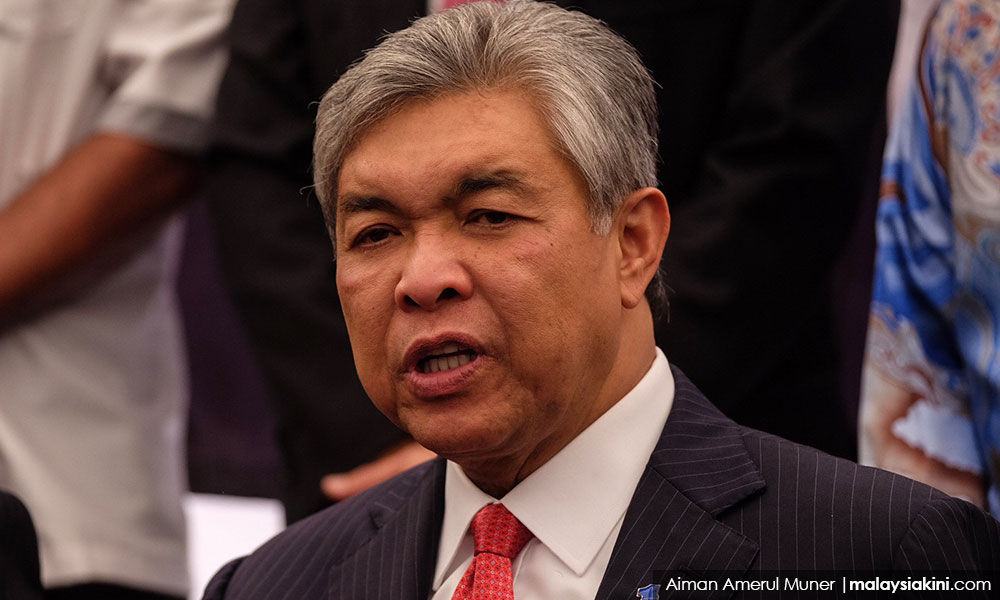
For what it is worth, the EU ban is not easy to implement, as they are merely two resolutions. The European Council of Ministers and the European Commission have to approve it. Even then, each of the 27 member states have to separately approve the ban too.
All in all, it will take a few more years before the so-called ban can be operationalised. When it does, palm oil will not disappear from the EU completely, as its yield has been proven by agronomists to be "nine times higher than soybean, five times higher than rapeseed, and eight times higher than sunflower," according to a widely shared Jakarta Post editorial.
Bad handling
Still, the above does not detract from the fact that Malaysia has handled the potential EU ban badly.
After all, if the perfect storm of the ban were to happen, what Mah called "crop apartheid," Malaysia would be at the receiving end of the mother of economic crises simply due to the impact on Felda and other plantation owners.
At current count, close to 3.2 million family members in Peninsular Malaysia and Sabah and Sarawak would be affected by the ban.
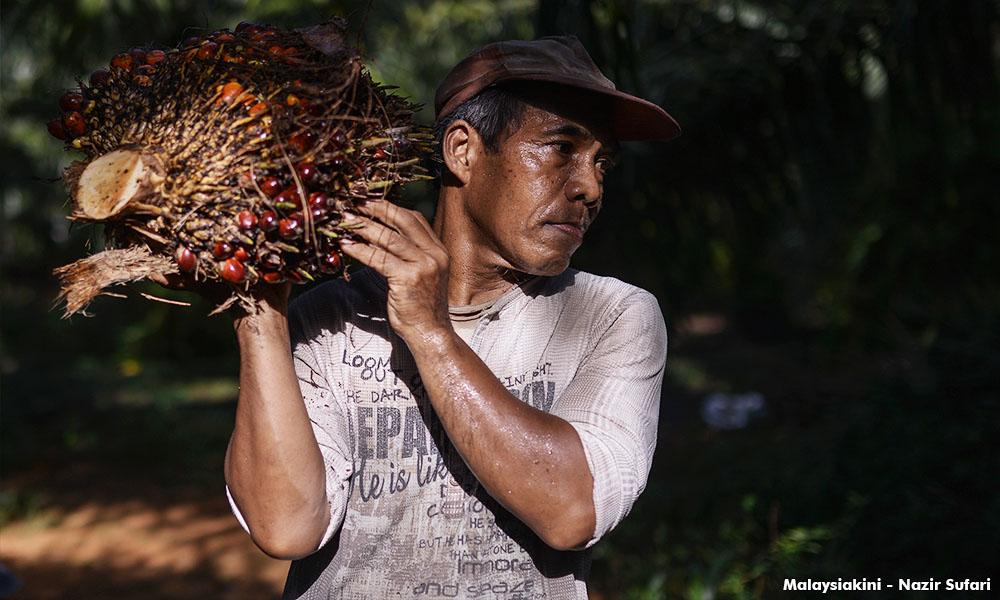
Thus the issue before one is simple: didn't Najib and the government see the prospective ban coming? Weren’t there any early warning signals?
The plain truth is, they did, but they didn't care about the plight of the farmers one bit.
First of all, talk of an EUP ban had been obvious at least since 2012. Yet, Malaysia was oblivious and indifferent to the threat of the MEPs.
In fact, right until the end of 2017, the Malaysian government still did not take the threat seriously, when in fact the crisis had been intensifying at least since October 2017.
But between October and December 2017, Malaysian government did not react at all. The reaction was mainly left to the farmers themselves. This alone suggests sheer neglect of their plight. What can the farmers do convince the MEP otherwise even if close to 103,000 signatures of the protests were handed over to EU?
Indeed, when the signatures were handed over to EU representative Carl Horick at Menara Tan and Tan last week, not a single cabinet minister was there to lend support.
It is in this sense that Najib and his cabinet has taken a cavalier and "tidak apa" attitude until the crisis became full-blown. More bluntly, they were sleeping on the job.
But how did they allow bunch of MEPs get the better of Malaysia?
After all, isn’t it a fact that Malaysia has 16 missions all across the 27 member states of European Union? Yes, if the admission of Mah is anything to go by, there were 16 fully accredited Malaysian ambassadors to EU who must have known of the increasing severity of the issue. Were they sleeping too?
But, as explained earlier, Najib and his cabinet colleagues simply did not care. Thus the Malaysian ambassadors let their guard down too.
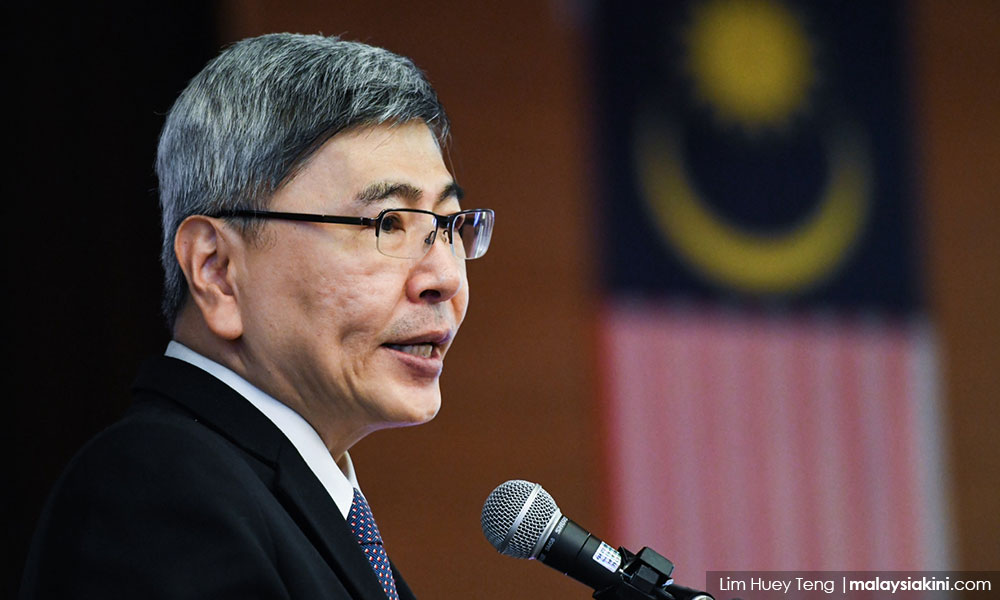
When Mah (photo) reacted last November, it was mostly to state that the ambassadors of EU and Malaysia are working together to resolve the issue. The dynamics of the issues, in other words, had morphed into crisis management, not preemption.
As and when Mah called for quick collective action across all sixteen embassies, his rallying cry fell on deaf ears too. After all, the Malaysian embassies were not under his command. They are the responsibilities of Anifah Aman, the Foreign Minister. Thus, Mah's rallying cry was as good as blowing a straw in the wind, since Anifah has been known to be highly protective of his ministerial turf.
However, the attack against palm oil – either in Malaysia or Indonesia – has always been centered on the issue of sustainable development.
In this sense, it doesn't take a genius to figure out that the MEPs would keep attacking Malaysia and Indonesia on such issues. More precisely, the question time and again seems to be, whether for Malaysia or Indonesia, can safely produce palm oil for healthy consumption.
But Najib and his cabinet seemed more ngrossed with 1MDB and other forms of grand larceny that they need to firefight.
Indeed, as early as 2012, the UN approved Sustainable Development Goals had been conceived by UNDP. As a member of the UN, Malaysia should have understood the implication arising from UNDP too. But it didn't.
Moreover, when UNDP formulated its development goals, Najib was already three years into the tenure of his premiership.
But, true to form, Najib did nothing to place palm oil as a top priority of sustainable development in Malaysia. Not surprisingly, the credibility of Malaysia as a palm oil producing country – that could meet the exacting standards of EU and UN – was never taken to heart.
Consequently, when the EU saw that Malaysia did not care about its national interest at all, they went for the jugular. They promoted rapeseed and soybean as their alternatives to palm oil after they had cornered up to 80 percent of the market.
In turn, although Malaysia and Indonesia both controlled 90 percent of the world’s palm oil production, it was our joint palm oil industry that was now at risk – not Europe's.
As things are, palm oil forms the second most important industry of Malaysia, after oil and gas. Each year, Malaysia's total exports on palm oil comes to about RM 80 billion alone.
The size of the industry is massive both in upstream and downstream activities. There are at least 454 refineries in and across Malaysia. If the EU ban is enforced, high unemployment in rural areas will instantly kick in, as workers have to be retrenched.
While belated reaction is better than none at all, there are numerous signs that Najib has reacted too slowly to the ban, and would have been slower had it not for the actions of Mah.
Furthermore, Mah himself said on Jan 28 that the threat is growing: "If we recall, the EU Delegation to Malaysia gave assurances via a statement dated Oct 30, 2017, that stated the European Parliament’s Environmental Committee anti-palm oil resolution on Oct 23 was non-binding and not part of a legislative initiative that needed to be ratified by EU member countries."
To which he added: "Despite that, the Industry, Research & Energy Committee (ITRE) of the European Parliament on Nov 28, 2017 went ahead and endorsed the ban on palm biofuels in Europe under the Renewable Energy Directive (RED), and now we have the definitive outcome of the Strasbourg vote. So the threat is real and growing."
A delicate situation
If what Mah says is right, the situation is dangerous and delicate. But how did Malaysia get here?
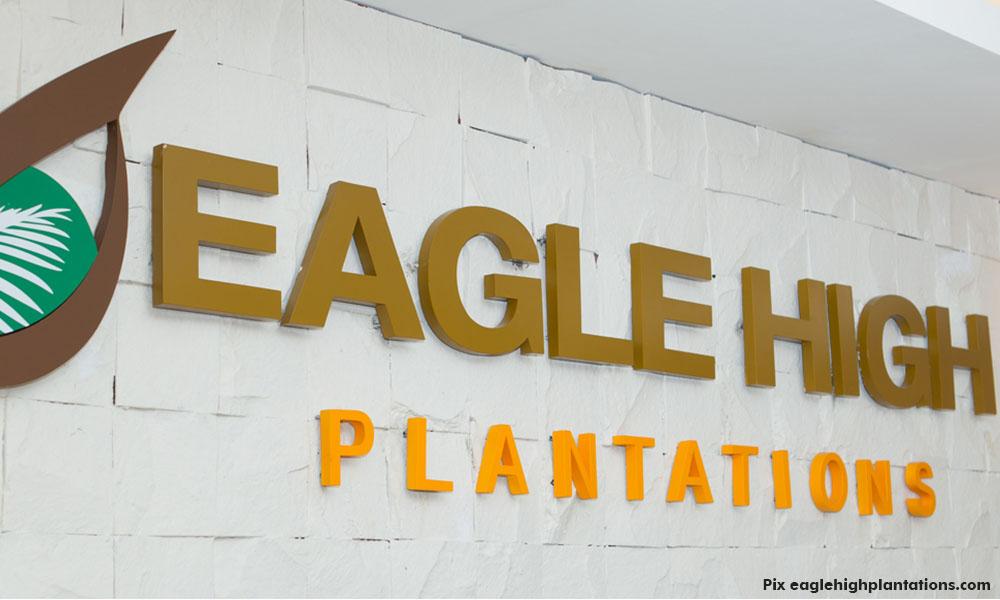
Well, instead of working with UNDP, we had Felda trying to work with the Eagle High Plantation (EHP) of Peter Sondakh, an Indonesian.
Under the agreement, Felda subsidiary FIC properties Private Limited paid US$505.4 million (RM2.164 billion) for a 37 percent stake in EHP.
Ostensibly, the collaboration with Sondakh was to give Felda access to more than 320,000 hectares of land bank in Indonesia, which is about 4.4 times the size of Singapore.
But, close to half of Indonesia's palm oil planters were smallholders and producers anyway. They could not have achieved the exacting standards of what the EU and UNDP had jointly demanded.
Second, due to the high cost of compliance to the highest standards of production, the problems faced by Indonesia with regard to the EU ban are now also hanging like an albatross on the neck of Malaysia.
Thus, why should the palm oil planters in Malaysia suffer for the bad environmental practice of Indonesia?
Yet, Malaysia does not appear to know how to learn its lesson. As this is written, there are words that Malaysia will work with Indonesia to force EU to lift its future ban. How?
Indeed, A Kadir Jasin noted that when the transaction with EHP went through, the prices of Felda dropped immediately, while the prices of EHP went up. Even the market, for the lack of better word, was against any collaboration with Sondakh.
Yet, Najib and the board of FGV Global proceeded with the plan. By going ahead, Malaysia had invariably inherited Indonesia's environmental issues as its own. This is not only bad strategy but bad international relations.
Thirdly, UNDP, which has an office in Putrajaya, has since May 2017 had Stefan Priesner as the UN Resident Coordinator of UNDP for Malaysia, Singapore and Brunei. Yet, no one of any importance seems to have contacted him. Or at least there are no public reports of such meetings.
In other words, a UN agency was willing to collaborate with Malaysia and at no cost too. But due to sheer apathy, Malaysia lost this vital and strategic opportunity.
Once again neither the PM nor the relevant cabinet ministers in charge of palm oil and primary industries were able to seize on the chance.
Even more ominously, the attempt to speak to the MEPs was only scheduled to be in the first quarter of March 2018.
Among others, the Malaysian delegation sought to debrief these MEPs included statutory entities such as MPOB, the Palm Oil Council, and the Palm Oil Certification Council.
Even more oddly, the risks posed by EU's ban had been well covered by both mainstream media and alternative media. Had the PM and the cabinet taken the time to read, they could have seen the lights of the oncoming freight train.
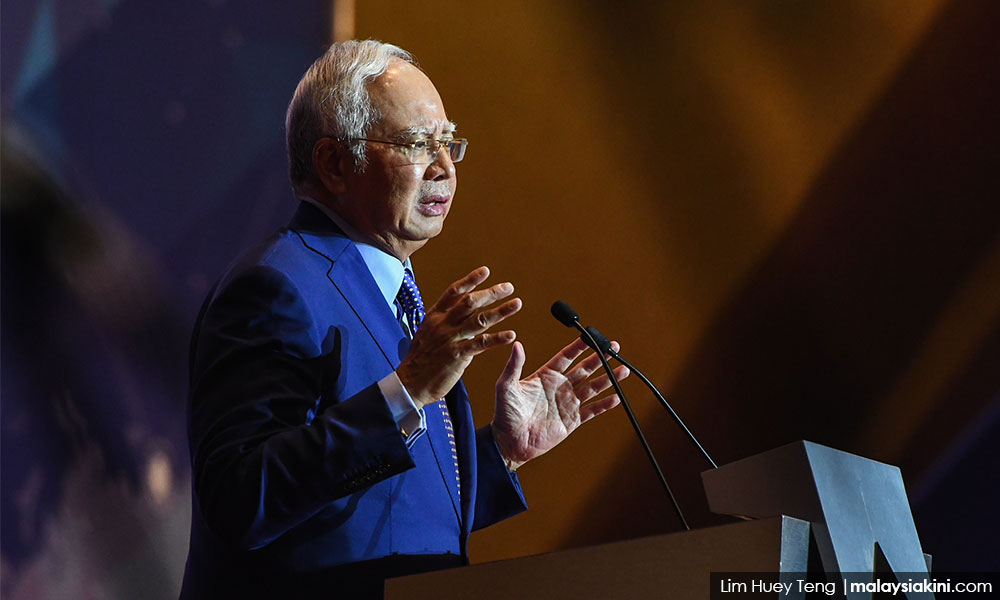
Yet, Najib (photo) did nothing to ease the tensions. MPOC Chief Kalyana Sundram, speaking to Bernama, said the delegation would present a scientific journal paper entitled "Building a Sustainable Future Together: Malaysian Palm Oil and European Consumption” to MEPs. But the PM did not seem to urge MPOB and/or MPOC to inject more urgency to the meeting.
Understood in this vein, the mangled palm oil policy of Malaysia began with the PM and his cabinet's poor understanding of how the UN and European Parliament operate. By neglecting both, he has compounded Malaysia's own delicate situation in the EU palm oil ban on biofuel.
By allowing his cabinet colleagues to press the panic button, as exemplified by Hishammuddin’s appeal to the French minister, or Tajuddin’s heroic call for an embargo, Malaysia has lost its strategic planning completely.
One must not forget EU with a population of 494.8 million and a GDP of US$17.1 trillion (RM66.47 trillion) surely will feel only an ant bite if the threat of EU products embargo is actually carried out. On the other hand, Malaysia will lose big if the EU palm oil ban were to be actually implemented.
God save Malaysia.
RAIS HUSSIN is a Supreme Council member of Bersatu. He also heads its Policy and Strategy Bureau.



No comments:
Post a Comment
Note: Only a member of this blog may post a comment.